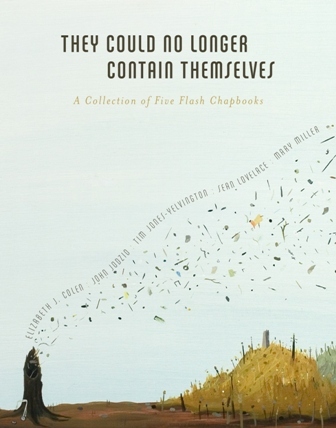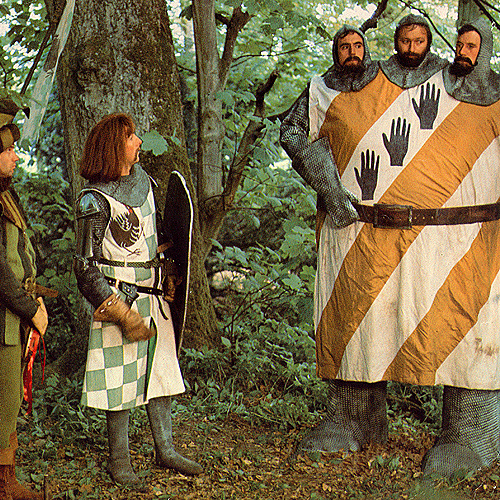Things I’ve Read Lately
I’ve read some interesting books and magazines over the past couple weeks so I’m going to talk about them in one big post. Also, I’m giving several books away.
They Could No Longer Contain Themselves
I don’t care for the term flash fiction. I understand the etymology but I often think, “Why not call it a story?” There are so many terms now for different kinds of fiction. There is an obsession with naming, creating taxonomies so we can better understand the nature of a thing. Flash fiction. Very short stories. Sudden fiction. Microfiction. Nanofiction. All these terms strive to categorize the nature of stories that fous on brevity and compression. Ask five different writers how to define flash fiction and you will likely hear five different definitions. I read an article in the most recent issue of The New Yorker about tiny houses, and the writer talks about the article’s main subject, this guy named Shafer who designs tiny houses and the writer says, “What makes Shafer’s houses different from others is the classical elements of form and proportion and the graceful compression of his design.” I kept thinking about that line as I thought about the stories in They Could No Longer Contain Themselves. They each contain the classical elements of good fiction and the compression in each story is also graceful like a tiny house that holds everything you need to feel at home.
In They Could No Longer Contain Themselves, the latest book from the reliably excellent Rose Metal Press, five writers offer five unique interpretations of flash fiction in chapbooks by Mary Miller, Elizabeth J. Colen, John Jodzio, Tim Jones-Yelvington, and Sean Lovelace (I reviewed his chapbook in 2009, here).
July 25th, 2011 / 5:36 pm
Seriously, Though… Some Thoughts on Writers Who Take Themselves Seriously
In an interview with The Paris Review, the whole of which is worth reading, James Salter discussed his writing process and how he thinks through his writing at the language level. He said:
I’m a frotteur, someone who likes to rub words in his hand, to turn them around and feel them, to wonder if that really is the best word possible. Does that word in this sentence have any electric potential? Does it do anything? Too much electricity will make your reader’s hair frizzy. There’s a question of pacing. You want short sentences and long sentences—well, every writer knows that. You have to develop a certain ease of delivery and make your writing agreeable to read.
Throughout the interview he speaks at length about his process and his influences and how he deliberately approaches his craft. He gives the impression of a writer who takes his craft and himself as a writer seriously. There is a confidence in his words, and he does not shirk away from being open about putting in the work of writing. Certainly, some of this confidence and self-awareness comes from a long career and the wisdom that comes with being older. He has had plenty of time to be able to articulate his aesthetic and his process. I would also think, though, that given his body of work, and the way he approached the interview, he is a writer who has always taken himself seriously.
Oh that playful Fugue
So, Fugue Magazine published a new issue with the theme of “Play.” (Tx to A. Monson for the tip) And play Fugue did (I encourage you to see excerpts online), with the authors of the issue. Enter the always seriously playful (and badass), Michael Martone. In the words of Fugue‘s editors:
One of the pieces included in the issue is a series of footnotes written by Michael Martone that runs throughout the footers of the issue. When we accepted this piece and when we designed the issue, we saw Martone’s contribution as a separate piece that happened to be playing with form in the same way other pieces were playing with content. We did not consult the other contributors to let them know the way Martone’s piece would run in the issue simply because we did not anticipate that writers would be upset, or see the piece as a violation of their art.
Well, some wordsmiths got writing-pants-n-wad about this sort of play. Not funny!! is what they said. The writer Lia Purpura sent in a lengthy letter of rebuke, posted for all to see by Fugue. Purpura writes (and a whole lot more–read the letter–she’s sort of pissed):
My work is not a Petri dish in which another writer may culture his work. My work is not a vehicle for a theme. It is not a means to an end. It’s not a stage upon which another may act out his piece. It’s not a field for a game of hide-and-go-seek. My essays are not raw materials to be remixed, recast, reconstituted, cut, spliced, manipulated or mashed up. I am an author and I am not dead.
Well, alrighty then. You can play with blocks and matches, but lay off the words, people. Right? Or waaaayyyy wrong-headed. Clear-sighted advocate or stick-n-mud? Obdurate authors or defenders of the holy grail? You people write and read. What if Fugue did this to your words? What if you were mashed-up with the shape-shifting Michael Martone? What do you think?



